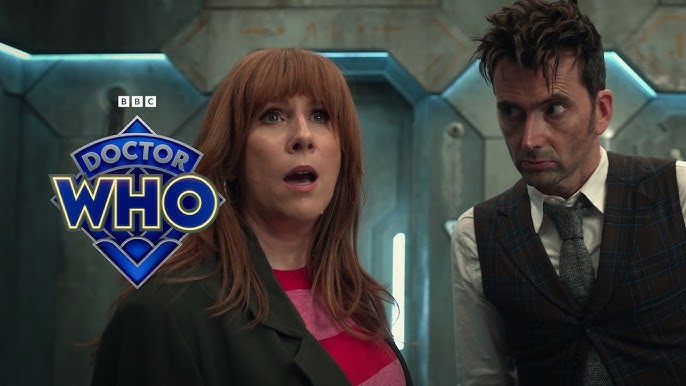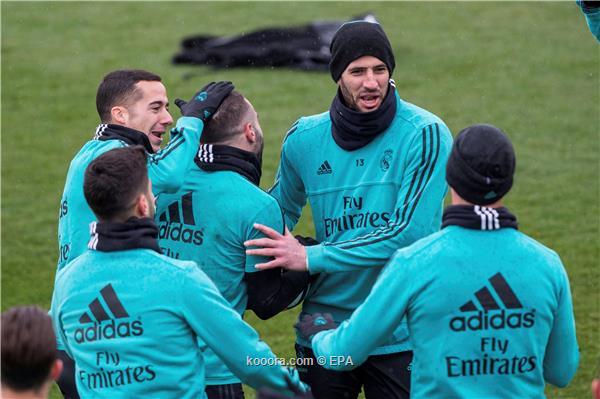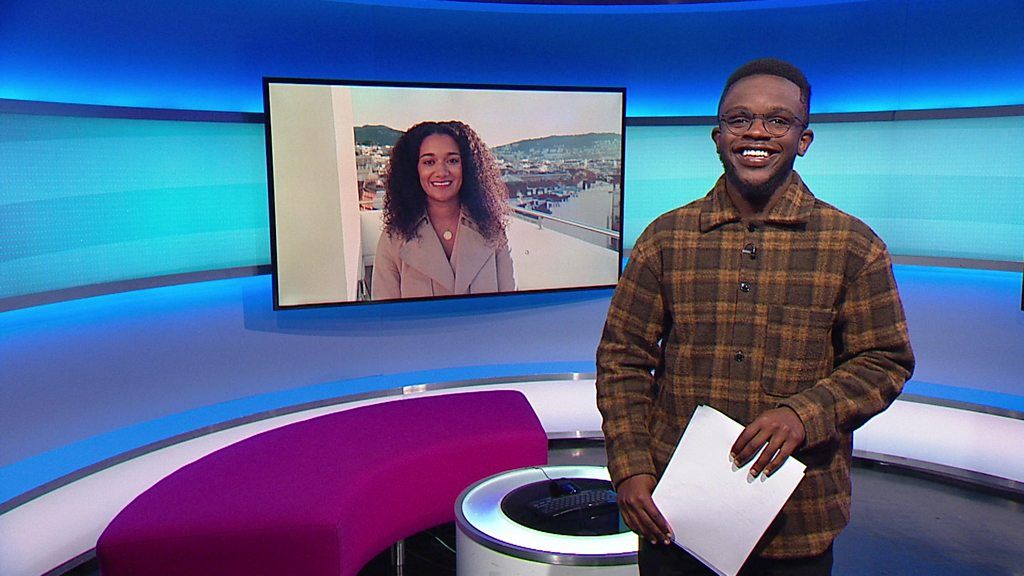'Woke' Criticism Validates Doctor Who, Says Star

Table of Contents
The "Woke" Backlash and Its Significance
The casting of Ncuti Gatwa, a Black, openly gay actor, has ignited a predictable "woke" backlash. This controversy, playing out largely on social media and online forums, echoes similar reactions to progressive casting choices in other franchises, from Star Wars to Marvel's Cinematic Universe. The nature of the criticism often centers around arguments that the show is prioritizing political correctness over storytelling merit, neglecting traditional aspects of the franchise, or even claiming a deliberate attempt to "erase" previous characters and narratives.
-
Analyzing the Criticism: Much of the negative feedback focuses on perceived deviations from established Doctor Who lore and a supposed lack of focus on plot and character development. The argument frequently presented is that casting decisions should prioritize acting talent over identity, ignoring the interconnectedness of identity and performance.
-
Platforms of Backlash: Social media platforms like Twitter and Facebook, as well as dedicated online forums and fan communities, have been the primary battlegrounds for this debate. The intensity and visibility of this online reaction amplify the perceived controversy.
-
Historical Context: This backlash is far from unprecedented. Similar controversies have surrounded the casting of diverse actors in various beloved franchises. Analyzing these historical trends reveals a pattern of resistance to representation, highlighting the systemic nature of the problem.
-
Disproportionate Negativity: The volume of negative reactions, compared to the widespread positive response to Gatwa's casting and the overall enthusiasm for the show's progressive direction, is telling. It highlights a vocal minority wielding significant online influence.
-
Barometer of Cultural Shifts: This backlash, however intense, acts as a barometer of evolving societal norms. The very existence of this controversy shows how much progress has been made, while also revealing the work that remains to be done in achieving true inclusivity.
Doctor Who's Commitment to Inclusive Casting and Storytelling
Doctor Who, despite its long history, has always adapted to reflect the changing times. While not always perfect, the show has a track record of showcasing diverse characters and stories. The recent "woke" criticisms only highlight the show's ongoing commitment to inclusive representation.
-
Historical Examples: From the diverse companions throughout the show's various eras, to the increasingly complex and nuanced portrayals of alien cultures and societies, Doctor Who has always strived to present a broad range of perspectives. The inclusion of characters from diverse ethnic backgrounds, sexual orientations, and gender identities is not a recent addition; it's part of the show's evolving narrative tapestry.
-
Reflecting Modern Society: The show's commitment to reflecting the diversity of modern society in its casting and storylines is not just about political correctness; it's about telling compelling and relatable stories that resonate with a wider audience.
-
Impact on Viewers: Diverse representation on screen has a powerful impact on viewers, especially young audiences. Seeing themselves reflected in popular culture builds confidence, promotes understanding, and encourages a sense of belonging.
-
Specific Examples: Characters like Captain Jack Harkness (an openly bisexual character) and Bill Potts (a lesbian character) are prime examples of Doctor Who's willingness to push boundaries and tell authentic LGBTQ+ stories.
-
Showrunner's Vision: The showrunner's commitment to inclusive casting is a clear indication of the show's intention to present a more accurate and representative vision of society. This vision is integral to the show's ongoing success.
Jodie Whittaker's Perspective and the Validation of the Show's Direction
Jodie Whittaker, a previous Doctor, has consistently supported the show's inclusive direction. Her comments on the backlash surrounding Gatwa's casting reinforce this commitment and underscore the show’s evolving success.
-
Whittaker's Quote: [Insert a direct quote from Jodie Whittaker about the backlash and its significance. If no direct quote exists, paraphrase her general stance on diversity and inclusion in relation to the show].
-
Contextualization: This perspective highlights not only Whittaker's personal belief in representation, but also a wider understanding within the production team of the importance of diverse casting choices.
-
Analysis of Perspective: Whittaker's views reflect a broader acceptance within the creative industry that inclusive representation isn’t a concession but rather an enrichment.
-
Implications for the Future: Her unwavering support signals a continued commitment to inclusive casting and storytelling for future seasons of Doctor Who, setting a positive example for other franchises.
-
Amplifying Importance: Her public endorsement of this progressive direction amplifies the message of the show's commitment to inclusive representation, countering the negative narratives of the backlash.
The Future of Doctor Who and the Importance of Progressive Representation
Ncuti Gatwa's casting marks a significant milestone, promising a new era for Doctor Who. The show's ongoing commitment to inclusive representation will likely continue to shape its narrative direction and legacy.
-
Impact of Gatwa's Casting: Gatwa's casting has already sparked renewed interest in the show, broadening its potential audience and further demonstrating the power of diverse representation.
-
Shaping Cultural Attitudes: Doctor Who, as a globally popular franchise, has a powerful platform to shape cultural attitudes toward diversity and inclusion.
-
Long-Term Implications: The ongoing commitment to diverse representation in mainstream media will have a profound long-term impact on societal attitudes, fostering greater understanding and acceptance.
Conclusion
The backlash against Doctor Who's increasingly inclusive approach, as highlighted by Jodie Whittaker's comments, ultimately serves as validation of the show's commitment to meaningful representation. The controversy underscores the show's evolving relevance and its willingness to reflect the changing face of society. The criticism highlights not a failure, but a success – a success in challenging norms and prompting important conversations about diversity and inclusion.
Call to Action: Are you ready to join the conversation surrounding "woke" criticism and the future of Doctor Who? Share your thoughts on the show's commitment to inclusive representation in the comments below. Let's discuss the ongoing impact of progressive casting and storytelling in Doctor Who and other beloved franchises.

Featured Posts
-
 Khtr Mhdq Bslah Rsalt Jw 24 Thdhr Mn Almghamrat
May 03, 2025
Khtr Mhdq Bslah Rsalt Jw 24 Thdhr Mn Almghamrat
May 03, 2025 -
 Where To Watch Newsround On Bbc Two Hd
May 03, 2025
Where To Watch Newsround On Bbc Two Hd
May 03, 2025 -
 Florida And Wisconsin Voter Turnout A Deep Dive Into The Current Political Landscape
May 03, 2025
Florida And Wisconsin Voter Turnout A Deep Dive Into The Current Political Landscape
May 03, 2025 -
 Balsillie Owned Golf Company To Develop Luxury Resorts In The Middle East With Saudi Partner
May 03, 2025
Balsillie Owned Golf Company To Develop Luxury Resorts In The Middle East With Saudi Partner
May 03, 2025 -
 Reform Uk Leader Nigel Farage Takes On Conservatives In Shrewsbury
May 03, 2025
Reform Uk Leader Nigel Farage Takes On Conservatives In Shrewsbury
May 03, 2025
